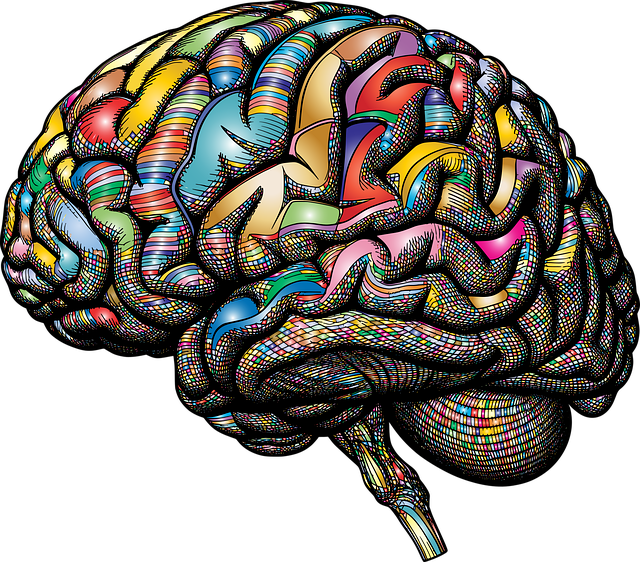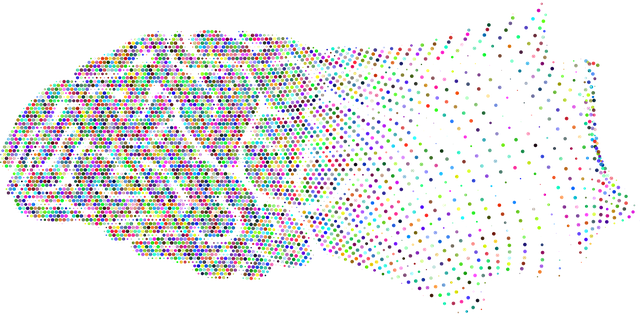In Northglenn, understanding mental health data through structured data collection is crucial for promoting emotional well-being using evidence-based practices like Dialectical Behavioral Therapy (DBT). DBT, initially designed for borderline personality disorder, equips individuals with coping skills to regulate emotions and enhance relationships. Therapists tailor strategies based on data analysis, improving treatment outcomes and reducing mental illness stigma. Continuous data analysis guides personalized treatment plans, combining workshops with Mind Over Matter principles to foster self-care routines and address diverse community needs.
Mental health data analysis is a powerful tool for understanding client outcomes and improving treatment strategies. This article explores the process of interpreting mental health data, focusing on the application of Dialectical Behavioral Therapy (DBT) techniques in Northglenn community settings. We’ll delve into the collection and preparation of insights, analyzing results to uncover patterns, and using data-driven decisions to enhance care for Northglenn residents. By integrating DBT principles, this approach promises transformative benefits for mental health services.
- Understanding Mental Health Data: Collecting and Preparing Insights
- Applying Dialectical Behavioral Therapy (DBT) Techniques for Analysis
- Interpreting Results: Unlocking Patterns and Trends in Client Outcomes
- Enhancing Care with Data-Driven Decision Making in Northglenn Community
Understanding Mental Health Data: Collecting and Preparing Insights

Understanding Mental Health Data is a pivotal step in navigating the complex landscape of emotional well-being promotion. In the context of Northglenn Dialectical Behavioral Therapy (DBT), collecting and preparing mental health data involves meticulous gathering of patient information, including symptoms, treatment progress, and demographic details. This process requires a structured approach to ensure consistency and accuracy, facilitating meaningful analysis.
By employing effective data collection techniques, healthcare providers can uncover valuable insights into what interventions are most beneficial for different patient profiles. Prepared data allows for the identification of trends, patterns, and correlations, enhancing the understanding of mental wellness challenges within specific communities. This knowledge is crucial in tailoring therapy techniques, like DBT, to address diverse needs, ultimately improving the effectiveness of Emotional Well-being Promotion Techniques and Healthcare Provider Cultural Competency Training.
Applying Dialectical Behavioral Therapy (DBT) Techniques for Analysis

Applying Dialectical Behavioral Therapy (DBT) techniques offers a powerful approach to mental health data analysis. This therapy, originally developed for individuals with borderline personality disorder, focuses on teaching effective coping skills to regulate emotions and improve interpersonal relationships. By integrating DBT methods, mental health professionals can facilitate clients’ emotional healing processes through structured skills training.
In the context of Northglenn Dialectical Behavioral Therapy, therapists assist clients in developing a balanced mindset by combining acceptance and change strategies. This involves helping individuals accept their current experiences while also learning to modify unhelpful behaviors. Such an approach not only benefits those struggling with mental health issues but also promotes Self-Care Routine Development for Better Mental Health. Additionally, the structured nature of DBT lends itself well to the production of Mental Wellness Podcast Series, providing accessible resources for others seeking guidance and support.
Interpreting Results: Unlocking Patterns and Trends in Client Outcomes

Interpreting the results of mental health data analysis is a powerful tool in understanding client outcomes and driving effective therapy strategies, especially within the context of Northglenn Dialectical Behavioral Therapy (DBT). By delving into patterns and trends, therapists can unlock valuable insights about what works best for their clients. This involves careful examination of various factors such as treatment duration, client demographics, and specific therapeutic techniques employed.
Identifying these patterns can lead to significant improvements in therapy practices. For instance, analyzing outcomes might reveal that certain DBT modules are more beneficial for clients with specific mental health conditions or that individual counseling sessions coupled with group support yield superior results. Such findings can inform the development of targeted interventions and even shape public awareness campaigns aimed at Mental Illness Stigma Reduction Efforts. Moreover, by understanding client progress, therapists can enhance Self-Esteem Improvement, ensuring that tailored therapies address not just symptoms but also the underlying factors contributing to mental health challenges.
Enhancing Care with Data-Driven Decision Making in Northglenn Community

In Northglenn, a small but vibrant community, the integration of data-driven decision making has significantly enhanced mental health care services. By analyzing trends and patterns within the population, healthcare providers are better equipped to offer personalized treatment plans, focusing on evidence-based practices like Dialectical Behavioral Therapy (DBT). This approach ensures that the unique needs of Northglenn residents are addressed effectively, whether they struggle with stress management or other mental health challenges.
The success of this strategy lies in the combination of community outreach programs and the implementation of Mind Over Matter principles. Through regular Stress Management Workshops organized by local community groups, residents gain practical tools to cope with daily stressors. These workshops, coupled with ongoing data analysis, help identify emerging issues and adapt services accordingly. As a result, Northglenn has witnessed improved mental well-being among its citizens, showcasing the power of data-informed initiatives in enhancing the reach and quality of healthcare services.
Mental health data analysis is a powerful tool for improving client outcomes, and as demonstrated through the successful implementation of Northglenn Dialectical Behavioral Therapy (DBT) techniques, it can revolutionize care in communities. By understanding and interpreting mental health data, healthcare professionals can identify patterns, trends, and areas for improvement, ultimately enhancing the effectiveness of treatment programs. This data-driven approach ensures that resources are allocated efficiently, allowing for more personalized and tailored support for individuals seeking therapy in Northglenn and beyond.











